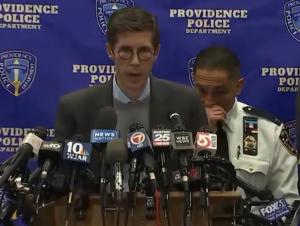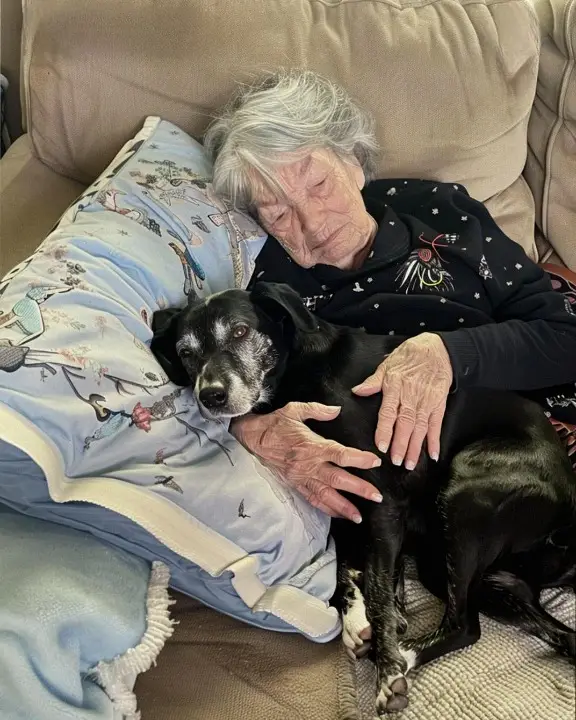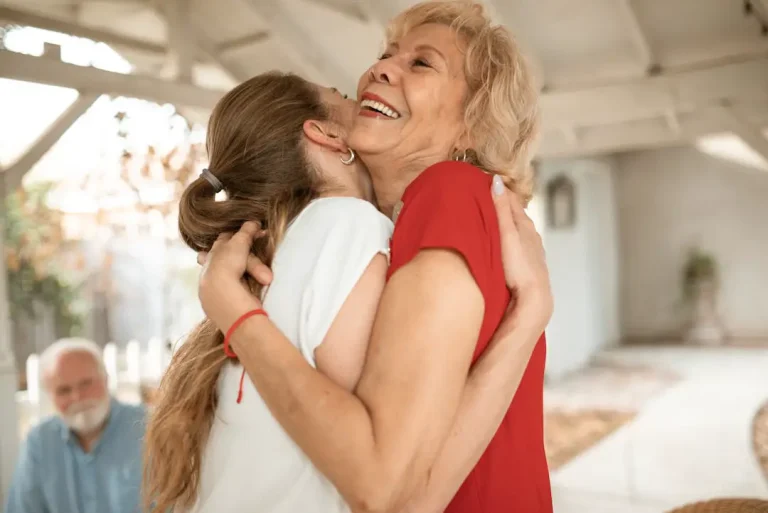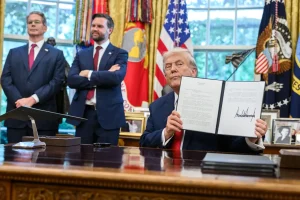My Family Abandoned Grandmain a Nursing Home – The Secret SHe Left Me Exposed Their Greed Forever
Sometimes the people we think have nothing left to give have been saving the most precious gifts for those who truly care. This is the story of how my grandfather’s final secret revealed both my family’s true nature and my own unexpected future.
The Grandmother Nobody Visited
Every Thursday at 3 PM, I walked through the automatic doors of Sunset Manor Nursing Home in Phoenix, Arizona, carrying the same small bag of sugar-free cookies and hoping to see a spark of recognition in my grandfather’s eyes.
At eighty-six, Harold “Hal” Thompson had been living at Sunset Manor for three years, ever since his mild dementia made it unsafe for him to live alone. I was usually the only visitor he had, despite having four children and twelve grandchildren scattered across the Southwest.
My family had essentially written Grandpa off when he moved to the nursing home. “What’s the point?” my mother would say when I suggested she visit. “He doesn’t even remember our names half the time.”
My cousins were equally dismissive. “It’s depressing,” my cousin Brett would complain. “Besides, he’s getting professional care. What more does he need?”
What he needed, I thought, was to know that someone still cared about him as a person, not just as an obligation to be managed by paid professionals.
So every Thursday, I drove the forty-five minutes from my apartment in Tempe to sit with Grandpa for two hours. Sometimes we played checkers. Sometimes I read to him from the sports section of the newspaper. Often, we just sat together in comfortable silence.
The Stories Nobody Else Heard
What my family didn’t realize—what they couldn’t understand because they never spent time with him—was that Grandpa’s mind was far sharper than they assumed. Yes, he struggled with short-term memory and occasionally forgot names or recent events. But his long-term memory was remarkably intact, and his wisdom and humor remained undimmed.
During our visits, Grandpa would tell me stories about his childhood during the Great Depression, his service in the Korean War, and the early years of his marriage to my grandmother Ruth. He shared memories of building his construction company from nothing, starting with just a truck and a toolbox and eventually employing over a hundred people.
“People think because I’m old and my memory isn’t perfect, I don’t understand what’s happening around me,” he told me one afternoon. “But I see everything, kiddo. I know exactly who cares and who doesn’t.”
That comment stuck with me, though at the time I didn’t fully understand its significance.
Grandpa also talked about his disappointment with how his children had turned out. Not their professional success—my mother was a real estate agent, my uncle Rick was an accountant, my aunt Linda was a bank manager, and my uncle David owned a restaurant chain. All of them had done well financially.
But their success had come with a coldness that bewildered him. “I don’t know where I went wrong,” he’d say sadly. “I taught them to work hard and be independent, but I never taught them to be selfish.”
The Family That Only Appeared for Emergencies
The only time I saw my extended family gathered together was during Grandpa’s medical emergencies—and even then, their presence felt more obligatory than caring.
When Grandpa had pneumonia the previous winter, my mother, aunts, and uncles all showed up at the hospital, but their conversations focused more on logistics than on his wellbeing.
“How long will this treatment take?” Rick asked the doctor.
“What are the long-term care implications?” Linda wanted to know.
“Is there anything we need to sign?” David inquired.
Nobody asked how Grandpa was feeling or whether he was scared. Nobody held his hand or told him they loved him. They treated his illness like a business matter to be efficiently resolved.
I spent the night in the hospital chair beside his bed, holding his hand and listening to his labored breathing. When he woke up around 3 AM, confused and frightened, I was there to reassure him.
“Emma?” he whispered, using my name correctly despite his usual memory struggles.
“I’m here, Grandpa. You’re safe. You’re going to be okay.”
He squeezed my hand. “You’re a good girl, kiddo. Don’t let them make you hard like they are.”
I promised him I wouldn’t, though I wasn’t entirely sure what he meant at the time.
The Final Months
In the spring of his last year, Grandpa’s dementia progressed more rapidly. His good days became less frequent, and his confusion more pronounced. The nursing home staff warned me that he was declining, but I continued my Thursday visits regardless.
On days when he didn’t recognize me, I would introduce myself again and again with patience. “I’m Emma, your granddaughter. Michael’s daughter. I come to visit you every week.”
Sometimes this would trigger recognition. Other times, he would nod politely and treat me like a friendly stranger. But even on his worst days, there seemed to be something in his eyes that suggested he knew I was someone who cared about him.
During one of our last coherent conversations, Grandpa mentioned something that puzzled me at the time.
“Emma, do you remember when you were little and we used to work in my workshop together?”
I did remember. When I was eight or nine, Grandpa had let me “help” him with woodworking projects in the garage workshop at his old house. I would hand him tools and watch in fascination as he built birdhouses and shelves with patient precision.
“I remember, Grandpa. You taught me how to use a ruler and how to sand wood properly.”
He smiled. “You were the only one of my grandchildren who was interested in learning. The others just wanted to play video games or watch TV. But you wanted to understand how things were made.”
“I loved spending time with you,” I told him honestly.
“I saved something special for you in that workshop,” he said, his eyes suddenly very clear and focused. “Something the others don’t know about. You’ll find it when the time is right.”
Before I could ask what he meant, a nurse came in to administer his medication, and the moment passed. By the next week, Grandpa’s confusion had deepened, and we never had another conversation that lucid.
The Call I’d Been Dreading
Grandpa passed away on a Tuesday morning in early September. The nursing home called me first because I was listed as his primary emergency contact, even though I wasn’t his next of kin.
I called my mother to break the news, and she dutifully contacted the rest of the family. The funeral was scheduled for Friday, giving everyone time to make arrangements.
The service was well-attended, but mostly by Grandpa’s old friends and business associates rather than family members. My mother, aunts, and uncles were there, of course, along with most of my cousins. But their presence felt performative, as if they were fulfilling a social obligation rather than mourning a beloved patriarch.
I was one of only three people who spoke during the service, sharing memories of Grandpa’s kindness, wisdom, and the stories he’d told me about his life. My cousins looked uncomfortable during my eulogy, perhaps recognizing that I had a relationship with Grandpa that they’d never bothered to develop.
After the service, my uncle Rick approached me. “Emma, we need to talk about Grandpa’s affairs. We’re meeting at his old house tomorrow to go through his belongings and figure out what to do with everything.”
Grandpa’s house had been empty for three years, maintained by a property management company but otherwise untouched since he’d moved to the nursing home.
“What about his will?” I asked.
Rick shrugged. “His lawyer said there wasn’t much to leave. The nursing home costs ate up most of his savings. The house has a reverse mortgage, so there’s no equity left. We’re basically just clearing out personal belongings.”
The House That Held Secrets
Saturday morning, I arrived at Grandpa’s house to find my family had already divided into efficient teams. My mother and Aunt Linda were going through kitchen items, Uncle Rick was handling paperwork and documents, and Uncle David was sorting through bedroom furniture.
My cousins were treating the whole thing like a treasure hunt, calling out whenever they found something potentially valuable.
“Here’s his watch collection!” Brett announced from the master bedroom.
“I found some old coins in this desk drawer!” his sister Melissa added.
The casual way they were going through Grandpa’s possessions—items that represented a lifetime of memories—made me uncomfortable. These weren’t treasures to be divided up; they were remnants of a man’s life that deserved more respect.
I volunteered to clean out the garage workshop, partly because I wanted to be alone with my grief and partly because I remembered Grandpa’s cryptic comment about saving something special for me there.
The workshop was exactly as I remembered it from childhood—well-organized tools hanging on pegboards, workbenches cleared and ready for the next project, and the faint smell of sawdust and wood stain that had always meant “Grandpa” to me.
I started with the obvious places: drawers, cabinets, toolboxes. I found old project plans, worn instruction manuals, and boxes of hardware, but nothing that seemed like the “something special” Grandpa had mentioned.
The Discovery That Changed Everything
I was about to give up when I noticed something odd about the workbench against the far wall. The bench was built into the garage, obviously custom-made, but one section of the front panel looked slightly different from the rest.
Examining it more closely, I realized it was actually a hidden drawer, camouflaged to look like part of the bench’s solid front panel. It took me several minutes to figure out how to open it, but eventually, I discovered a small latch hidden underneath the bench top.
Inside the secret drawer was a metal box, about the size of a shoe box but much heavier. My hands shook as I lifted it out and carried it to the workbench surface.
The box wasn’t locked, but it was sealed with tape that had obviously been there for years. I carefully peeled away the tape and lifted the lid.
Inside were documents, photographs, and a letter addressed to me in Grandpa’s familiar handwriting. I opened the letter first, my heart pounding as I began to read.
My dear Emma,
If you’re reading this, it means I’m gone and you’ve found the hiding place I told you about. I knew you would be the one to look for it because you’re the only one who ever really listened to me.
The documents in this box represent something your family doesn’t know about—something I kept secret for good reason. They think the nursing home costs used up all my money, but that’s not true. I moved the bulk of my assets into investments and accounts they don’t know about.
I didn’t want them fighting over money while I was still alive, so I let them believe I had nothing left. But I’ve been watching, Emma. I’ve been seeing who really cares about me and who just sees me as a burden to be managed.
You’re the only one who visited me regularly. You’re the only one who treated me like a person instead of an obligation. You’re the only one who deserves what I’ve worked my whole life to build.
Everything is yours now, kiddo. Use it wisely, and don’t let them make you feel guilty for caring when they couldn’t be bothered to.
All my love, Grandpa
The Documents That Revealed the Truth
With trembling hands, I examined the documents in the box. There were bank statements showing accounts I’d never heard of, investment portfolios worth hundreds of thousands of dollars, and property deeds for commercial real estate holdings I didn’t know existed.
The paperwork revealed that Grandpa had been far more financially savvy than anyone realized. Rather than simply saving money in traditional accounts, he’d been investing in real estate, stocks, and bonds for decades. The nursing home costs had been paid from just one of several accounts, leaving the majority of his wealth untouched.
According to the documents, the total value of his hidden assets was approximately $2.3 million.
There was also a will, dated just six months before his death and signed in the presence of witnesses I didn’t recognize. The will was clear and legally binding: everything was left to me, with specific instructions that the other family members were to receive nothing.
But perhaps most revealing was a folder of notes Grandpa had kept over the past three years—observations about family visits, phone calls, and interactions. The notes painted a clear picture of exactly how little attention my relatives had paid to him.
March 15: Emma visited today. We played checkers and she told me about her job at the library. She stayed for two hours.
March 22: Emma visited again. Brought me cookies and read me the sports section. Michael (her father) called for five minutes to ask if I needed anything but didn’t visit.
April 12: Rick visited for the first time in six weeks. Stayed for fifteen minutes. Asked about finances and whether I’d updated my will. Didn’t ask how I was feeling.
Page after page documented the same pattern: my regular, caring visits contrasted sharply with my family’s sporadic, perfunctory contact.
The Confrontation I Wasn’t Ready For
I was still sitting in the workshop, trying to process what I’d discovered, when my cousin Brett appeared in the doorway.
“Emma, what are you doing out here? We’re almost finished with the house.” He noticed the open box and documents spread across the workbench. “What’s all that stuff?”
Before I could answer, he was walking toward me, his eyes scanning the papers. I saw the moment he realized what he was looking at—bank statements and legal documents with significant dollar amounts.
“Holy shit, Emma! Where did you find this?”
I quickly gathered the documents back into the box. “It’s just some old paperwork.”
“Old paperwork?” Brett’s voice rose with excitement. “Emma, these are bank statements! Look at these numbers! Grandpa had way more money than anyone knew!”
Before I could stop him, Brett was shouting toward the house. “Dad! Uncle Michael! You guys need to see this!”
Within minutes, my entire family had crowded into the garage workshop, all talking at once as they examined the documents I’d tried unsuccessfully to keep private.
“I can’t believe he hid this from us,” my mother said, her voice a mixture of anger and excitement.
“Look at this real estate portfolio,” Uncle Rick marveled. “He owned four commercial properties I never knew about.”
“This changes everything,” Aunt Linda declared. “We need to contact his lawyer immediately.”
The Will Reading They Didn’t Expect
The family insisted on an immediate meeting with Grandpa’s attorney, Margaret Williams, who agreed to see us that afternoon despite it being a Saturday. Her law office was closed, but she opened it specifically for our “emergency” meeting.
I brought the documents I’d found, including the will, but I hadn’t yet told anyone what it contained. Part of me was still hoping there had been some mistake, that Grandpa hadn’t really intended to exclude his own children from his estate.
Margaret Williams was a woman in her sixties who had apparently known Grandpa for many years. She examined the documents I presented with professional interest but no surprise.
“These are all legitimate,” she confirmed. “Harold was very thorough in his estate planning.”
“So how do we divide everything?” Uncle David asked eagerly. “Four children, twelve grandchildren—we’ll need to figure out the fairest way to split the assets.”
Margaret looked at him with something that might have been pity. “I’m afraid there’s nothing to divide, Mr. Thompson. Harold left very specific instructions about his estate.”
She opened the will and began to read in a clear, professional voice:
“I, Harold James Thompson, being of sound mind and body, do hereby leave the entirety of my estate—including all financial assets, real estate holdings, and personal property—to my granddaughter Emma Thompson, daughter of Michael Thompson.”
The silence that followed was deafening.
“I make this bequest because Emma is the only member of my family who showed genuine care and concern for my wellbeing during my final years. While my children and other grandchildren treated me as an obligation to be managed, Emma treated me as a person worthy of love and attention.”
My mother found her voice first. “That’s impossible. He can’t leave everything to just one grandchild.”
“Actually, he can,” Margaret replied calmly. “And he did. The will is legally binding and was executed properly with witnesses.”
The Accusations and Anger
What followed was the ugliest family confrontation I’d ever witnessed. My relatives, who had been united in their excitement about the unexpected inheritance, quickly turned that energy into anger directed at me.
“This is ridiculous,” Uncle Rick declared. “Emma probably manipulated him when his mind was failing.”
“She had access to him every week,” Aunt Linda added suspiciously. “Who knows what she told him about the rest of us?”
My mother’s accusation was the most hurtful: “Emma, you took advantage of a sick old man. This isn’t right, and you know it.”
“I never asked Grandpa for anything,” I said quietly. “I visited him because I loved him, not because I expected anything in return.”
“Bullshit,” Brett spat. “Nobody spends that much time with someone unless they want something.”
Margaret Williams intervened. “I should mention that Harold specifically anticipated this reaction. He asked me to read this additional statement if his family challenged his decision.”
She pulled out another document and began reading:
“If my children and grandchildren are angry about my will, they should ask themselves why they think they deserve money from someone they couldn’t be bothered to visit. Emma earned this inheritance through three years of faithful, loving care. The rest of you earned nothing.”
The brutality of Grandpa’s words silenced the room, but only temporarily.
“We’ll contest this will,” Uncle David announced. “No judge will uphold something this unfair.”
“You’re certainly free to try,” Margaret replied. “But I should warn you that Harold documented extensive evidence of the family’s neglect and Emma’s devotion. A legal challenge would likely be unsuccessful and expensive.”
The Evidence That Couldn’t Be Denied
Margaret Williams then produced something that shocked everyone: a detailed log that Grandpa had kept of every family interaction during his time at the nursing home.
The log was devastating in its thoroughness. It documented not just who visited and when, but the nature and duration of each interaction. My weekly visits were recorded in detail, along with descriptions of our conversations and activities.
By contrast, my relatives’ interactions were recorded with stark brevity:
Michael: Called to ask about insurance paperwork. 3 minutes.
Rick: Visited to discuss selling house. Stayed 20 minutes. Didn’t ask about my health.
Linda: Called on my birthday. 5 minutes. Asked if I needed anything but hung up when I said I was lonely.
Margaret continued reading examples from the log, each entry more damning than the last. The pattern was undeniable: I had been the only family member who treated Grandpa with genuine care and affection.
“Harold also video recorded several conversations with Emma during her visits,” Margaret added. “In these recordings, he explicitly states his intention to leave everything to her because of her faithful care.”
The existence of video evidence seemed to deflate the family’s anger slightly. They realized that contesting the will would mean having their neglect documented and presented in court for public examination.
“Even if the will is legal,” my mother said desperately, “it’s not right. Emma should share the inheritance with family. It’s the decent thing to do.”
I looked at the faces around me—people who had ignored Grandpa for years and were now demanding a share of the money he’d left me. Their sense of entitlement was breathtaking.
“I’ll think about it,” I said quietly, though I had no intention of sharing the inheritance with people who had shown so little care for the man who earned it.
The Months of Harassment
My family didn’t accept my reluctance to share the inheritance gracefully. Over the following months, I received constant calls, texts, and visits from relatives who alternated between guilt-tripping and threatening me.
My mother called almost daily, sometimes crying about her financial struggles, other times angry about my “selfishness.” Uncle Rick sent me detailed financial plans showing how the inheritance could be “fairly” divided among all family members. Aunt Linda presented me with sob stories about her children’s college expenses and mortgage payments.
The pressure was intense and emotionally exhausting. Some nights, I wondered if it would be easier to just give them what they wanted and avoid the constant conflict.
But then I would remember Grandpa’s words in his letter: “Don’t let them make you feel guilty for caring when they couldn’t be bothered to.”
I also discovered additional evidence of his wishes when I went through more of his personal belongings. Hidden in various places throughout his possessions were notes and letters expressing his disappointment with his children’s behavior and his gratitude for my care.
One note, found tucked into his Bible, was particularly moving:
Emma is the only one who sees me as a person instead of a problem. She deserves everything good in life. I wish I could have been a better example to my children of how to love unconditionally.
The Legal Challenge That Failed
Despite Margaret Williams’ warnings, my family did attempt to contest the will. They hired an attorney and filed a challenge based on claims of undue influence and diminished capacity.
The legal process was stressful and expensive for them, but ultimately futile. Grandpa’s medical records showed that while he had mild dementia, he retained the mental capacity to make legal decisions until very close to his death. The will had been written during a period when his cognitive abilities were well-documented and legally sufficient.
More damaging to their case was the extensive documentation of their neglect contrasted with my care. The nursing home staff testified about my regular visits and my family’s absence. The video recordings Margaret had mentioned proved that Grandpa’s decision was made deliberately and with full understanding of its implications.
After six months of legal proceedings, the judge upheld the will in its entirety. My family was ordered to pay court costs and attorney fees, adding financial injury to their legal defeat.
The failed legal challenge seemed to finally convince them that they wouldn’t be getting any of Grandpa’s money. The harassment decreased, though the family relationships remained damaged, perhaps permanently.
Finding Purpose in Inheritance
With the legal challenges resolved, I faced the question of what to do with an inheritance I’d never expected. The money represented not just financial security, but the validation of three years of caring for someone I loved when no one else would.
I quit my part-time job at the library and used some of the inheritance to complete my master’s degree in social work, specializing in elder care advocacy. Grandpa’s experience with family neglect had opened my eyes to how common this problem was, and I wanted to help other elderly people who faced similar situations.
I also used part of the inheritance to establish a foundation that provides support services for elderly people whose families are unable or unwilling to care for them. The Harold Thompson Foundation offers companion services, transportation assistance, and advocacy for nursing home residents who have little family involvement.
The foundation’s motto, taken from one of Grandpa’s notes, is “Everyone deserves to be seen as a person.” It’s a principle that guides all our work and reflects the lesson Grandpa taught me about the importance of treating elderly people with dignity and respect.
I kept Grandpa’s house, renovating it into a comfortable home where I could honor his memory while building my own future. The workshop where I found his hidden treasure became my home office, where I manage the foundation and coordinate services for elderly clients.
The Family Relationships That Couldn’t Be Repaired
Three years have passed since Grandpa’s death, and my relationships with most of my family remain strained. My mother and I speak occasionally, but our conversations are stilted and uncomfortable. She’s never fully forgiven me for not sharing the inheritance, and I’ve never forgiven her for abandoning Grandpa when he needed her most.
My uncles and aunts avoid me entirely, and most of my cousins have cut off contact. At family events I still attend—weddings, graduations, funerals—I’m treated with polite coolness, as if I’m a stranger who happens to share their last name.
Sometimes this saddens me, but mostly I’ve come to accept that our family bonds were always more fragile than I’d realized. People who could abandon their own father in his time of need were probably never going to be reliable sources of love and support anyway.
The family members who matter most to me are the ones I’ve found through my work with the foundation—elderly people who’ve become like adopted grandparents, their adult children who struggle with caregiving responsibilities, and the dedicated staff members who work tirelessly to provide dignity and care to vulnerable populations.
The Lessons Grandpa Taught Me
Grandpa’s inheritance taught me several important lessons that have shaped how I live my life and approach my work.
First, I learned that real wealth isn’t just about money—it’s about the relationships we build and the love we give and receive. Grandpa was wealthy in every sense because he’d earned genuine affection from people who cared about him as a person, not just as a source of financial support.
Second, I discovered that acts of kindness and care have value that extends far beyond their immediate impact. My Thursday visits to Grandpa weren’t just gifts to him—they were investments in my own character and future that paid dividends I never could have imagined.
Third, I learned that family isn’t just about blood relationships—it’s about who shows up when you need them, who treats you with respect and dignity, and who values your wellbeing above their own convenience.
Finally, I understood that inheritance isn’t just about money and property—it’s about values, principles, and the responsibility to use whatever we’ve been given to make the world a little better than we found it.
The Legacy That Lives On
Today, when I visit elderly clients through the foundation, I often think about Grandpa and how lonely those last years must have been for him. I see that same loneliness in the faces of other elderly people whose families treat them as burdens rather than treasures.
But I also see the incredible difference that simple human connection can make. A weekly visit, a friendly conversation, someone who remembers your name and cares about your stories—these small acts of kindness can transform both the giver and receiver in ways that are impossible to measure.
Grandpa’s final gift to me wasn’t really the money he left behind—it was the lesson that love and attention are the most valuable currencies we have to offer. By teaching me to see the person inside the aging body, to value wisdom over productivity, and to understand that caring for others is one of life’s highest purposes, he gave me a inheritance far more precious than any bank account.
The Harold Thompson Foundation now serves over 300 elderly clients each year, providing them with the companionship, advocacy, and respect that every person deserves regardless of their age or family situation. Each life we touch is a testament to Grandpa’s belief that everyone matters, everyone has value, and everyone deserves to be seen and loved.
Sometimes, when I’m working late in the office that used to be Grandpa’s workshop, I can almost feel his presence—proud of the work we’re doing, satisfied that his final lesson has taken root and grown into something beautiful.
The secret he hid for me wasn’t just money. It was the understanding that real inheritance passes from generation to generation through love, through teaching, and through the example of how to live a life that matters. That’s a treasure worth more than any amount of money, and it’s one that can never be taken away or contested in court.
It’s the only inheritance that truly lasts.

Emily Johnson is a critically acclaimed essayist and novelist known for her thought-provoking works centered on feminism, women’s rights, and modern relationships. Born and raised in Portland, Oregon, Emily grew up with a deep love of books, often spending her afternoons at her local library. She went on to study literature and gender studies at UCLA, where she became deeply involved in activism and began publishing essays in campus journals. Her debut essay collection, Voices Unbound, struck a chord with readers nationwide for its fearless exploration of gender dynamics, identity, and the challenges faced by women in contemporary society. Emily later transitioned into fiction, writing novels that balance compelling storytelling with social commentary. Her protagonists are often strong, multidimensional women navigating love, ambition, and the struggles of everyday life, making her a favorite among readers who crave authentic, relatable narratives. Critics praise her ability to merge personal intimacy with universal themes. Off the page, Emily is an advocate for women in publishing, leading workshops that encourage young female writers to embrace their voices. She lives in Seattle with her partner and two rescue cats, where she continues to write, teach, and inspire a new generation of storytellers.









